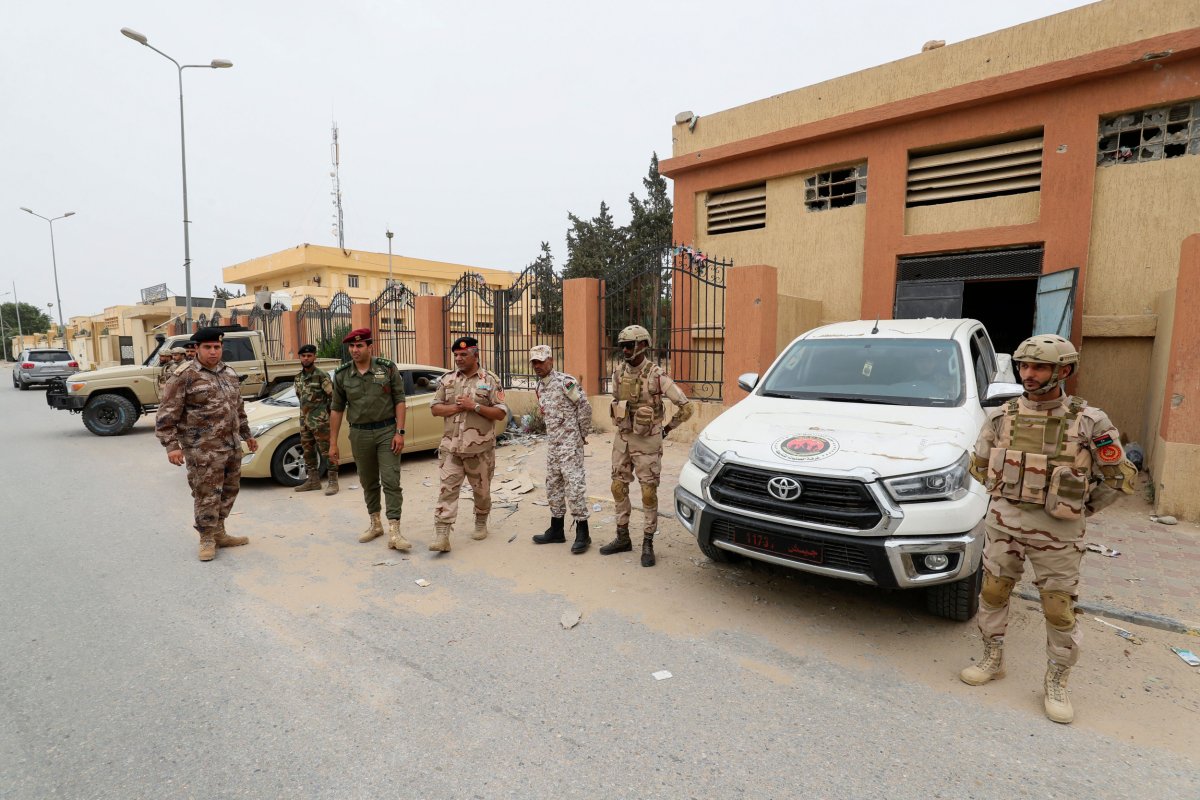Some might call this progress: Libya now has only one prime minister.
Its second prime minister, Fathi Bashagha, had been appointed in March of last year by Libya's eastern-based parliament. After an ill-conceived NATO-backed uprising toppled Muammar Gaddafi in 2011, Libya split into eastern, western, and southern portions in 2014. Bashagha's military forces attempted—and failed—to seize Tripoli last August and depose Libya's other prime minister, the U.N.-backed Abdelhamid Dabaiba. And earlier this month, the eastern parliament voted to remove its prime minister.
Make no mistake about it: This chaos is not happening in a vacuum. It's being fueled by a country far across the globe. China has been fanning the flames by backing Bashagha's military assault—while the Biden administration stands on the sidelines, allowing Beijing to continue to destabilize the divided country.
Fighting among the various sides and about 86 tribal factions mostly ended with a ceasefire in 2020. The U.N. had been working toward elections in 2021, but seemingly endless bickering over rules has been continually delaying a vote. Now some believe a new interim government is needed before any nationwide election is held. Others see such a move as merely a delay tactic designed to keep in power "political dinosaurs" who know they cannot win in free and fair contests.
Fortunately, there has been progress recently, in the form of a secret meeting of Libyan political figures—the so-called 6+6—which took place in Morocco and could pave the way for nationwide elections on December 24, Libya Independence Day. For now, there is even a preliminary agreement on issues such as candidate qualification, a hopeful sign, though there have been many false dawns before.
And yet, in this delicate moment, China has been intervening and trying to determine outcomes. Beijing has been openly pouring money into infrastructure such as a nationwide $33 billion rail-bus project, part of the troubled "Libya Tomorrow" program. China is the primary financier of the venture, which is associated with the just-removed Fathi Bashagha.
And that's not all. As part of the rail-bus deal, China obtained the rights to mine Libyan gold in the southern part of the country, Jonathan Bass, a consultant at InfraGlobal Partners, told me. And it obtained those rights "on extremely favorable terms," Bass says.
China is destabilizing Libya in other ways, too. Beijing has been supporting warlord Khalifa Haftar, leader of the eastern-based Libyan National Army. Haftar, whose fighters have been accused of war crimes, had attempted to seize Tripoli in 2019 and backed Bashagha's unsuccessful attacks last summer.

And through it all, the United States is mostly missing in action.
Leaked secret U.S. intelligence documents exposed evidence of the Wagner Group in Libya, along with a one-off American action which "destroyed a Wagner logistics aircraft" in "a successful unattributed attack in Libya," and C.I.A. Director William Burns visited Tripoli and Benghazi in January. But for the most part, the Biden State Department has shown little interest in what is occurring in North Africa in general and Libya in particular.
"We just can't ignore it, which we are," Thomas Riley, America's ambassador to Morocco from 2003 to 2009, told me. "Doing nothing is not acceptable because doing nothing allows the worst elements to drive events."
And not just in Libya. The concern is that Libya's troubles spread westward to American partner Morocco, eastward into Egypt, and northward onto the continent of Europe. Libya and the other four countries of North Africa stand between European nations and the increasingly dangerous regimes immediately to their south. These five North African states can either protect Europe as a last line of defense or destabilize it as the pathway for the misery and terrorism now devouring Africa.
"Libya represents the most significant and dynamic area of strategic rivalry and maneuver in the Mediterranean basin," Gregory Copley, the president of the International Strategic Studies Association and editor-in-chief of Defense & Foreign Affairs Strategic Policy, tells me.
That is all the more reason for Washington to engage in that country now.
Gordon G. Chang is the author of The Coming Collapse of China. Follow him on Twitter @GordonGChang.
The views expressed in this article are the writer's own.
Uncommon Knowledge
Newsweek is committed to challenging conventional wisdom and finding connections in the search for common ground.
Newsweek is committed to challenging conventional wisdom and finding connections in the search for common ground.
About the writer
To read how Newsweek uses AI as a newsroom tool, Click here.








